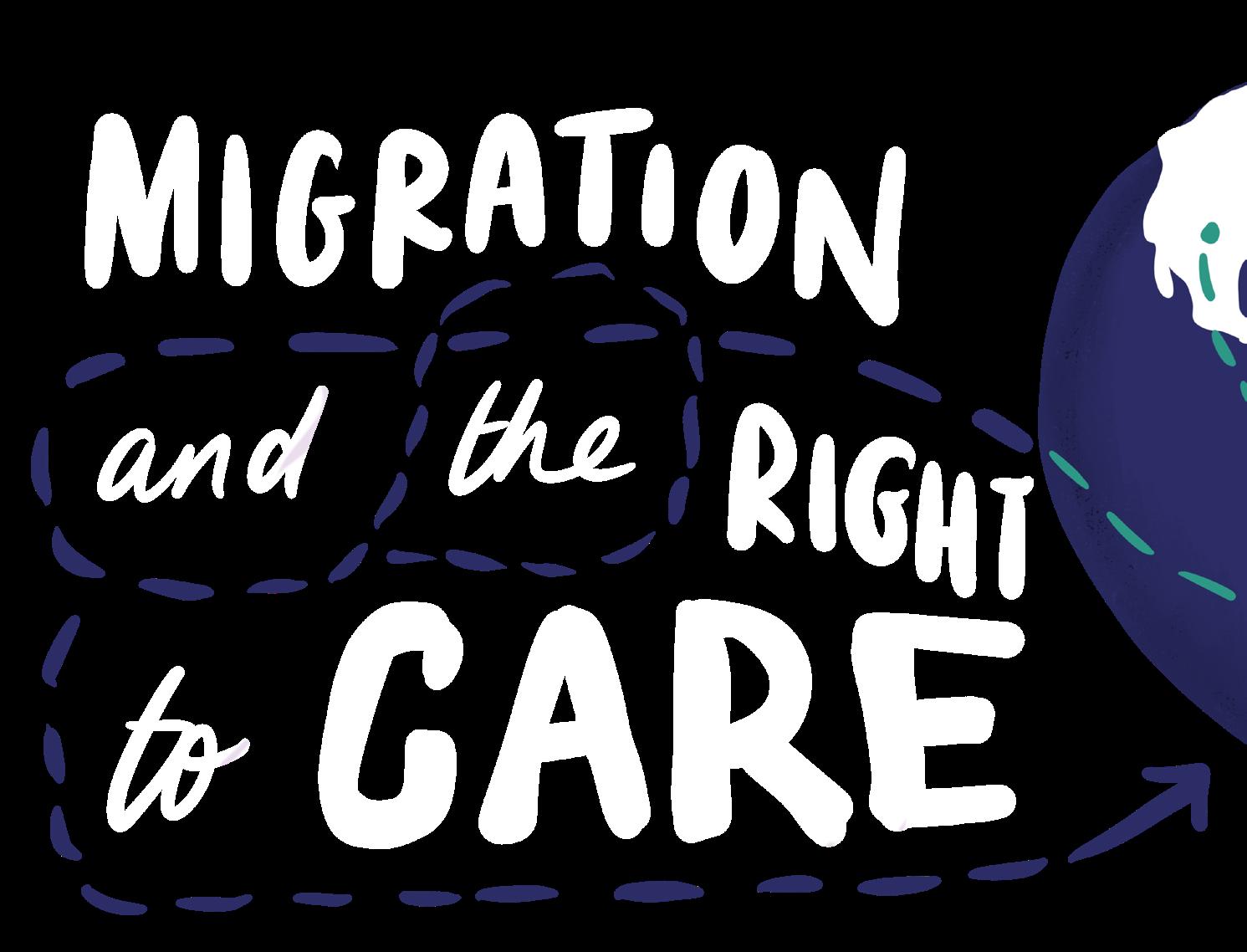




Centre for Care, University of Sheffield | Publication date: July 2025
Authors: Jayanthi T Lingham and Majella Kilkey


Our Funders


Our Partners


This study explores the care experiences and needs of older people (aged 50+) with histories of international migration living in Sheffield, UK, and those in care relationships with them. We define care broadly — not just formal services, but all support forms promoting wellbeing and inclusion in daily life.
Older people are often talked ‘about’, rather than directly included in, conversations about care. Meanwhile, migration-related conversations often focus on younger migrants. Our work addresses this gap by foregrounding the voices of older migrants and understanding how their migration histories might affect current care experiences and needs, including their rights to equal access to good care.
Understand older migrants’ care needs, experiences and relationships, and how these are affected by migration.
Examine inequalities in access to adult care, specifically how the distribution of care resources affects the well-being of migrants in the UK.
Recommend changes in services and policy to better support older migrants and those in care relationships with them.
The research was undertaken in close collaboration with two community-based organisations (SADACCA and Stand As One) and conducted between May 2023 and August 2024. It included:
• Oral history sessions with 11 older migrants consisting of multiple interview rounds, with an arts-based activity.
• 23 semi-structured interviews with people in unpaid and paid care relationships with older migrants.
• 54 interviews in total, conducted in participants’ preferred languages with support from interpreters and translators.
All data are anonymised - any identifying features have been removed.
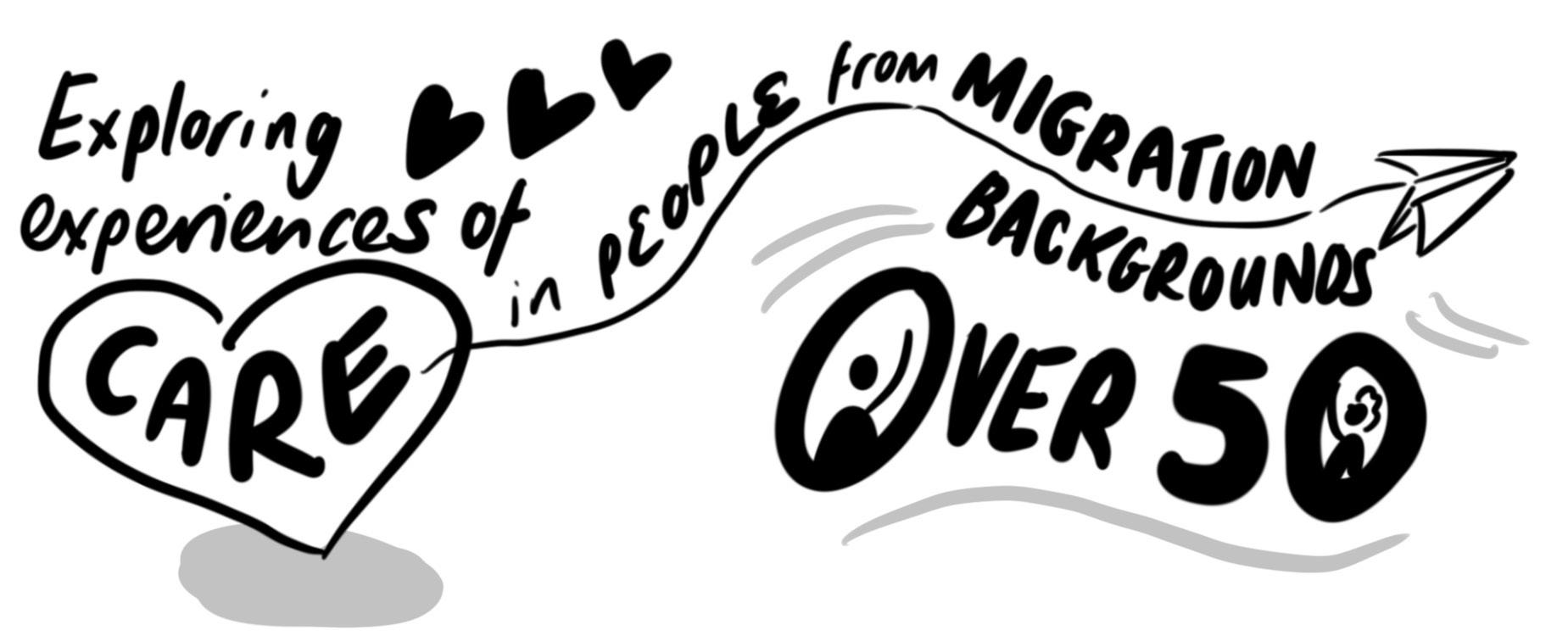
We worked with two groups with different migration experiences:
• ‘Labour migrants’, who came to the UK in the decades after World War II, from Caribbean and African countries formerly colonised by Britain. They or their parents came to join the labour force. This group includes people from the ‘Windrush generation’.
• ‘Resettled refugees’, who came to the UK from East Africa as a result of war and conflict. They arrived through the Gateway Protection Programme, a UK government refugee resettlement scheme (2004-2020). All have ‘indefinite leave to remain’, with the right to apply for British citizenship.
While we use these descriptors for the two groups in this report, we recognise that these broad categorisations can mask the many complexities of people’s lives.
Common themes and policy needs emerged across both groups, alongside group-specific insights.
Care relationships and needs are global
Care relationships include globally separated families and communities, even when people have lived in the UK for decades.
Migration histories and experiences shape care needs today
The UK’s hostile immigration system affects wellbeing significantly, increasing people’s health and care needs.
Good care is multi-relational and involves much more than a two-way relationship between caregiver and care receiver.
The importance of connected health and social care systems
Joined up health and social care systems are crucial, but other services, especially housing, also matter - without these, care needs increase.
Racism damages health and undermines care
Longstanding racism in institutions and systems harms the health and wellbeing of racially minoritised migrants in the UK, impacting their care needs in later life.
Economic marginalisation increases health and care needs
The cost-of-living crisis, economic inequalities, and immense financial costs of the immigration system, all affect older migrants’ wellbeing.
There are ongoing challenges of ‘doing care’ globally, which can make care much more difficult than for those with care networks solely in the UK. Older migrants who had to leave children in countries of origin may need their support now, but face hostile visa regulations to bring them to the UK even for short visits. With multiple generations now ageing, older migrants may also be managing care, from the UK, for older family members who have returned ‘home’.
Collective resources and strength have been built up over decades of life in the UK (and these earlier experiences often create a sense of solidarity with newer migrants from elsewhere).
That said, people who came to the UK decades ago as part of the post-war workforce may have greater care needs today. They often undertook physically demanding and dangerous work in post-war Britain, while simultaneously facing racism and bringing up families without wider care networks.
Both the Windrush generation and their children, often UK-born, are now older, with ageing care experiences and needs. Many still face unresolved issues from the Windrush Scandal, damaging their health and wellbeing.
Others outside the Windrush cohort, such as migrant healthcare workers, have also been harmed by the UK’s hostile immigration system, including by the impacts of complex and changing visa regulations, bureaucratic delays, and unequal worker rights.
“The Home Office Minister really stood on some ground to destroy life. People like me and my family. They use people, they discard them like rubbish water. But these are the people that are serving, building the country, building your environment. Our mental health, and so many people around us, their mental health was trashed.”
Esther, oral history participant
“One of the things which happened was, my dad had an industrial injury, pre-health and safety laws. In a steel factory. That was in the 1970s. Big, big shock. Luckily, he recovered. But obviously, living with compromised mobility from then.”
Mina, oral history participant


Good care includes being able to ‘self care’, as a means of nourishment and joy, but also as survival in the face of outside discrimination.
“It goes beyond medication. One of the areas that develops me and my family is the nearby library. You’ll learn, you’ll get access to books directly. And you are accepted, you are dignified. You are not discriminated against.”
Esther, oral history participant
It also entails recognition of, and provision for, difference in formal adult care services, especially in relation to food and nutrition, and personal care (bathing, hair and skin care).

“People have got different needs, and they need to be met in different ways. Our clients, they don’t eat microwaved food, ready meals. They eat freshly cooked food, and that needs to be part of the care plan. They’ve been eating that way for their whole life, so we need to respect that that’s the way they’re living. They can’t just change because they need care now.”
Local community organisation, day and domiciliary care provider
Health and social care systems need to join up and go beyond the individual. Older migrants’ care needs are inseparable from the needs of younger generations and their global families and communities. There are intergenerational challenges for the Windrush generation and their descendants, around older generations’ caring preferences and needs, and younger generations’ economic and time constraints. All, however, are wary of inferior care in residential homes due to under-resourcing, institutional and everyday racism, and lack of provision for culturally specific needs.
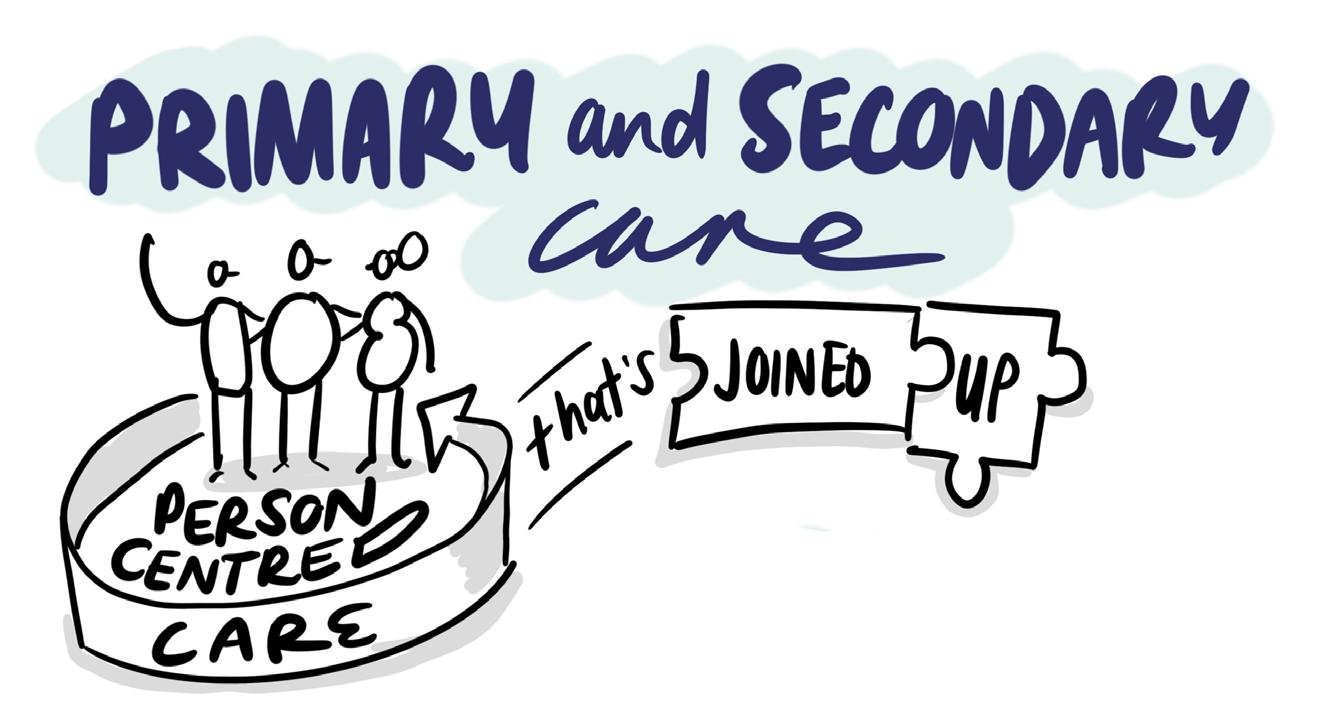
“Social services, their interest is with the client, isn’t it? It’s not holistic. As long as their client is well cared for and whatever - job done. But the impact of that on the carer, I don’t think there was much concern for that, actually.”
Adeline, oral history participant
Although participants described how things were typically worse decades ago, it was clear racism still exists, structurally, institutionally and in everyday practices, in health and social care systems.
“One of the times, she [mother-in-law] was in the bedroom, I was caring for her, two nurses, senior nurses came in and said to my mother-in-law, “And where have you had this [illness] from?” Talking to her like she was a prostitute or a drug user. They didn’t show any kind of respect towards her.”
“Oh yes, yes. In this country, [racism] is systemic, it’s endemic in discrimination. I’ve experienced that.”
Sidney, oral history participant
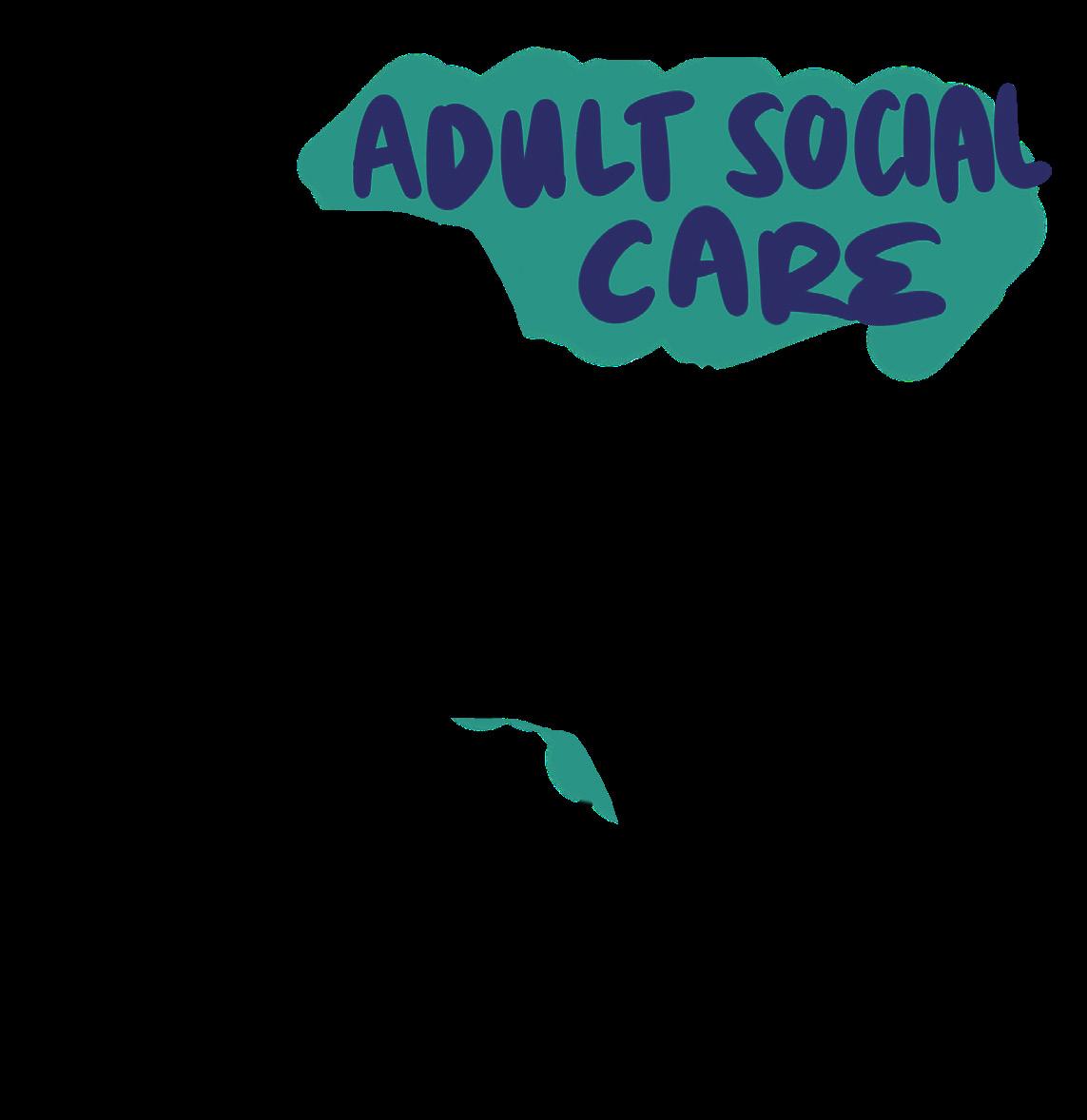
Collective economic inequalities affect families’ capacities to care. Local government funding cuts since 2011 have disproportionately affected smaller community groups within marginalised Black African and Caribbean communities in the UK, which provide tailored and holistic care support. This means those populations’ care needs are even more under-served by local and national government.
“It’s about the economic situation as well. To be helping one of your family members who needs care, you need to be part time or working less. As a minority group already financially, most of the time, the family need to do full-time jobs, so they’re not available to support the one who needs care.”
Local community organisationday and domiciliary care provider
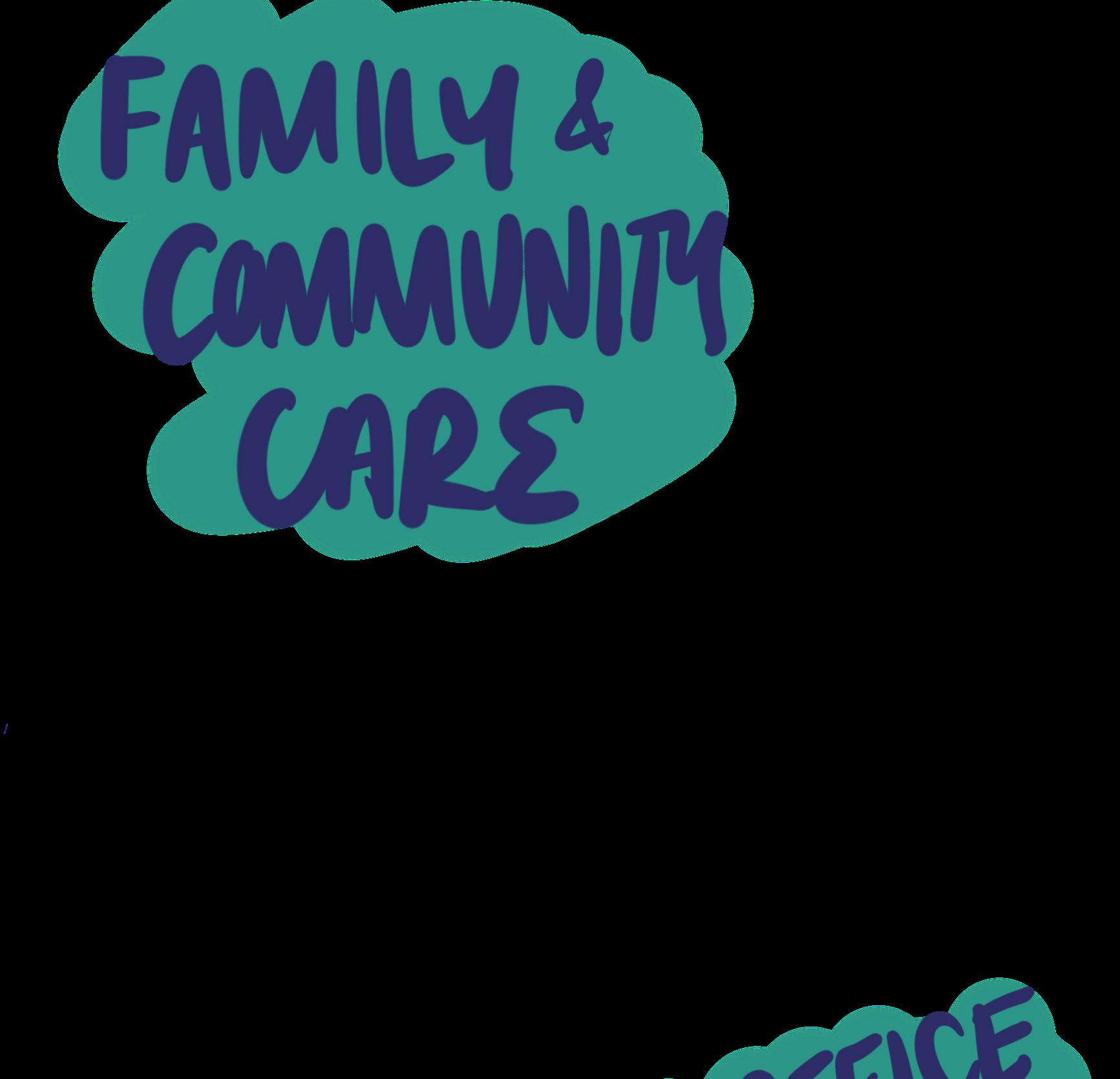
Participants recounted caring more collectively for one another in places of origin (East Africa), versus more individualised and isolating experiences in the UK.
Furthermore, older migrants in the UK are now separated from family such as young adult children, who are still living in war-affected and economically precarious situations. Without family reunification routes, older migrants need to support their families through remittances. Doing care this way is extremely challenging, mentally and financially.
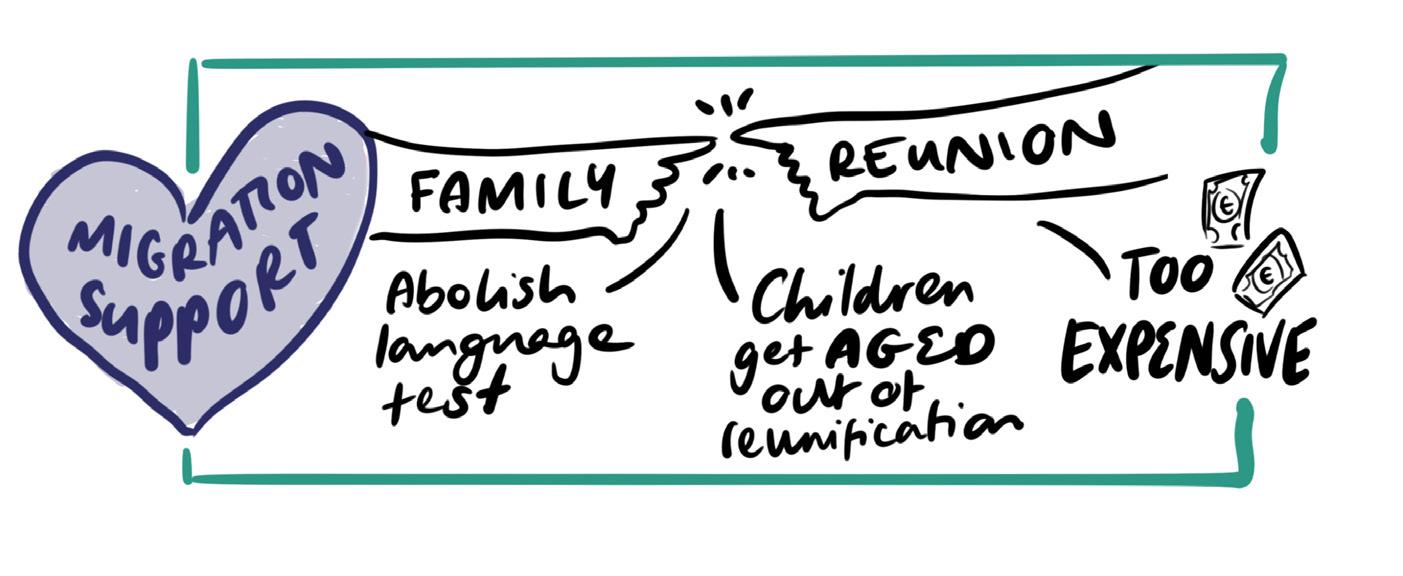
Older migrants’ long histories of caring, (often from childhood), and experiences of loss, suffering, war and multiple displacements, affect their wellbeing today, leading to advancing health needs earlier in life.
The Gateway Protection Programme provided refugees with a year of resettlement support. This was very important and appreciated, but it was not enough, and care needs remain. People arriving in the UK through newer Vulnerable Persons Resettlement Schemes now receive 3-5 years of support, but our participants have not benefited from the policy change.
There is a punitive approach to refugee ‘integration’ in the UK, which damages, rather than supports, health. Notably, the DWP (Job Centre) and English language (ESOL) services are unsympathetic to long-term health conditions and non-nuclear caring arrangements, such as for kin and grandchildren.
Participants strongly desire to learn English. However, ESOL classes use an immersive teaching method that assumes full literacy abilities. This approach is inappropriate for older migrants, who may not have had formal education even in their first language(s) and need literacy support. These policies and practices impact health and wellbeing negatively, storing up care issues for the future.
“When I got here, I couldn’t even sleep at night. I was just thinking about my children left behind in [East Africa] who have no guardian. That’s why, even when I am here, my main responsibilities remain taking care of my children.”
Shani, oral history participant

“I wake up in the morning and go [to ESOL classes]. Sometimes, I would be coughing a lot until I vomited on the road. I would be stuck on the way. But when they enrol you, the first thing they tell us is, if you are late for more than 15 hours in a month, you should just know that you will not get allowances from the Job Centre.”
Barika, oral history participant

Citizenship, and the security it brings, affects wellbeing, especially for older migrants. Obtaining a British passport, however, is vastly unaffordable. Additionally, the exemption from English language and ‘Life in the UK’ tests is not applied until the age of 65; yet this group has advancing health and care needs much earlier in their lives.


“We spend all our time here in the office, in the street, hospitals, in people’s homes. But we don’t receive money for the work we are doing. The community organisations, they are doing the job the Council should be doing, but they don’t value that.”
Migrant rights local community organisation 1
“Where we come from, there’s non-stop war. That’s why we fled from there; that’s why we’re here. That’s why we want our passport. So even if we get too old and we can’t do anything, we die, but with our UK passport. And then we’ll have hope not to go back.”
John, oral history participant
Family and self-organised community groups meet multiple everyday care needs outside the formal adult social care system, such as supporting digitally excluded older migrants, and providing language support to help navigate complex state systems. However, this care is not cost-free and is extremely under-resourced.
“My mum can’t even express herself to those [domiciliary] carers. She won’t be able to tell them exactly what she needs. But with me, she can communicate. There’s no-one who can take better care of my mum than I can. But now, because I’ve left my job to look after my mum, I don’t have anything left.”
Family carer
This group needs support from multiple state services: primary (GP) and secondary (hospital) healthcare, housing, and immigration. However, service provision is disjointed and often actively hostile to them as refugees, leaving unmet physical health needs and driving additional harms.

“There is discrimination, there is prejudice, there is inequality. The practice is still there, and discrimination is every day. We will use the word [discrimination], but does it really make any change? I can’t see any change. It is race, yes. I can’t even say ethnicity. It is race.”
Migrant rights local community organisation 2
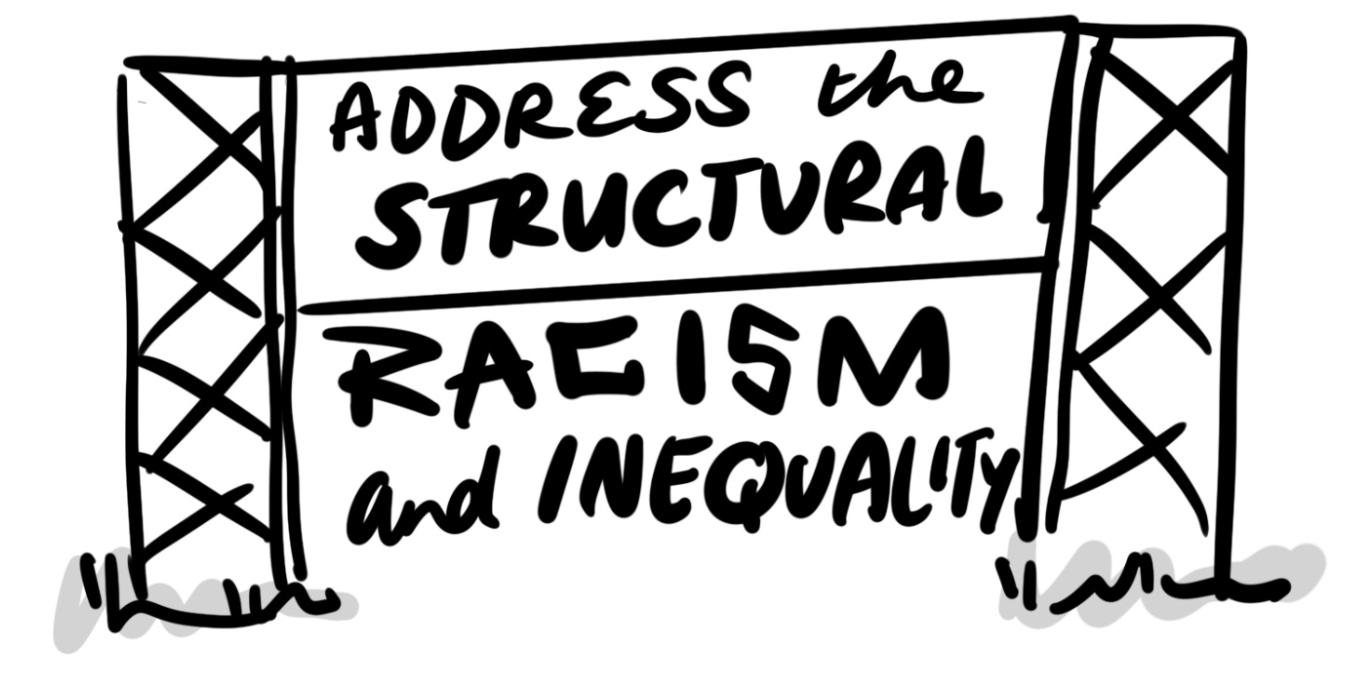
Doing care globally and locally is extremely difficult, especially in the cost-of-living crisis. Participants want to care for one another and for themselves but cannot afford to, which leads to worsening immediate health, and potentially greater needs in future.
“Two years have elapsed since I have been sick. You feel like they despise you. You start losing hope. I still haven’t got answers from the doctor; I don’t get answers. You start to feel as if they are fed up with you. Sometimes, you feel like they do not want you anymore. The people who brought me here to help me are the ones who brought me here to die.”
Nia, oral history participant
“After paying all the bills, you just find out that you don’t have money. That’s the main issue.”
Amani, oral history participant

We are advocating for the right to both receive and provide good care.
We adopt a holistic understanding of care that encompasses statutory service provision and crucial household, kin and community support networks, including globally separated ones. This understanding goes beyond the parameters of the Care Act 2014, which only covers local authority obligations towards adults needing formal social care support, and their carers.
We make the following recommendations for change in public services and policies, in order to better meet the care needs of older migrants:
1. Widen the definition of ‘family’ beyond the nuclear family in family reunification schemes, so legislation can support families as they really exist.
2. Prioritise applications for visitor visas that are motivated by care reasons.
3. Create a fairer pathway to citizenship for resettled refugees: end citizenship fees for older people and introduce the exemptions from English language and ‘Life In UK’ tests at an earlier age than 65.
4. Provide retrospective support for resettled refugees who did not benefit from the extension of the Vulnerable Persons Resettlement Scheme (VPRS). Bring provision in line with the current VPRS parameters and adopt the ‘best practices’ of the former Gateway Protection Programme.
5. Develop enabling structures within refugee integration policies and practices that support health and wellbeing, in place of the current punitive aspects that worsen older refugees’ health. This change is especially needed within the DWP (Job Centre) and English language teaching provisions.
6. Implement the recommendations of the ‘Windrush Lessons Learned Review’ (2020), to support the health and wellbeing of directly impacted individuals, and also their families, kin and communities, who have been negatively affected.
7. Increase funding for community organisations, recognising that they deliver crucial care for older people with globally separated care networks.
8. Prioritise financial support for unpaid family carers in migrant and economically marginalised populations, recognising that they are less likely to have support from locally based wider care networks.

9. Ensure person-centred care for older migrants by recognising how migration histories can affect health and care needs in later life and adapting provision accordingly.
10. Ensure joined up care throughout the NHS system for older migrants, recognising that their ‘informal’ (unpaid) care networks are less likely to be locally based and available to do the ‘joining up’.
11. Increase investment in, and investigate further development of, existing ‘best practice’ organisations, which have the expertise to deliver migrant-specific and culturally appropriate domiciliary and residential care.
12. Adapt and properly resource mainstream care services to deliver migrant-specific and culturally appropriate care, especially in food provision and personal care (washing, skin care and hair care).
13. Develop and implement robust anti-racist programmes and practices across mainstream care services, working with existing experts to address institutional and structural racism in care.
14. Ensure social housing provision for older migrants takes into consideration their care needs, for example, that it is accessible for family and local community support.
This is a summary of findings from the research study ‘Borders and Care’, undertaken within the Centre for Care at the University of Sheffield. The Centre for Care is funded by the Economic and Social Research Council (ESRC), award ES/W002302/1, with contribution from the National Institute for Health and Care Research (NIHR) (Department of Health and Social Care). The views expressed are those of the authors and not necessarily those of the ESRC, UKRI, NHS, the NIHR or the Department of Health and Social Care
We thank the two Sheffield community organisations SADACCA and Stand As One. Especial thanks to Sylvie Manga, Olivier Tsemo and Justin Espoir Machongo, for ongoing collaboration and sharing of expertise. From SADACCA, we additionally thank Daniel Douglas for ongoing support. From Stand As One, we thank Aline Marora, Mitchel Dibogo, Chance Migabo, Iledephonse Hussein and Soleil Ruvimba, for invaluable language support.
We are extremely grateful to all research participants for their time, contributions and insights.
Finally, many thanks to our Centre for Care colleagues for supporting throughout the research, and to Nifty Fox Creative for their creative skills enabling us to share findings. Any errors or omissions are our own.
For more information, please contact:
Dr. Jayanthi Lingham, Research Associate, Centre for Care: J.T.Lingham@sheffield.ac.uk
Prof. Majella Kilkey, Professor of Social Policy, School of Sociological Studies, Politics and International Relations: M.Kilkey@sheffield.ac.uk
Please cite this report as: Lingham, J.T. and Kilkey, M. (2025). Migration and the Right to Care: Summary of a research study on migration and care. University of Sheffield: Centre for Care.





